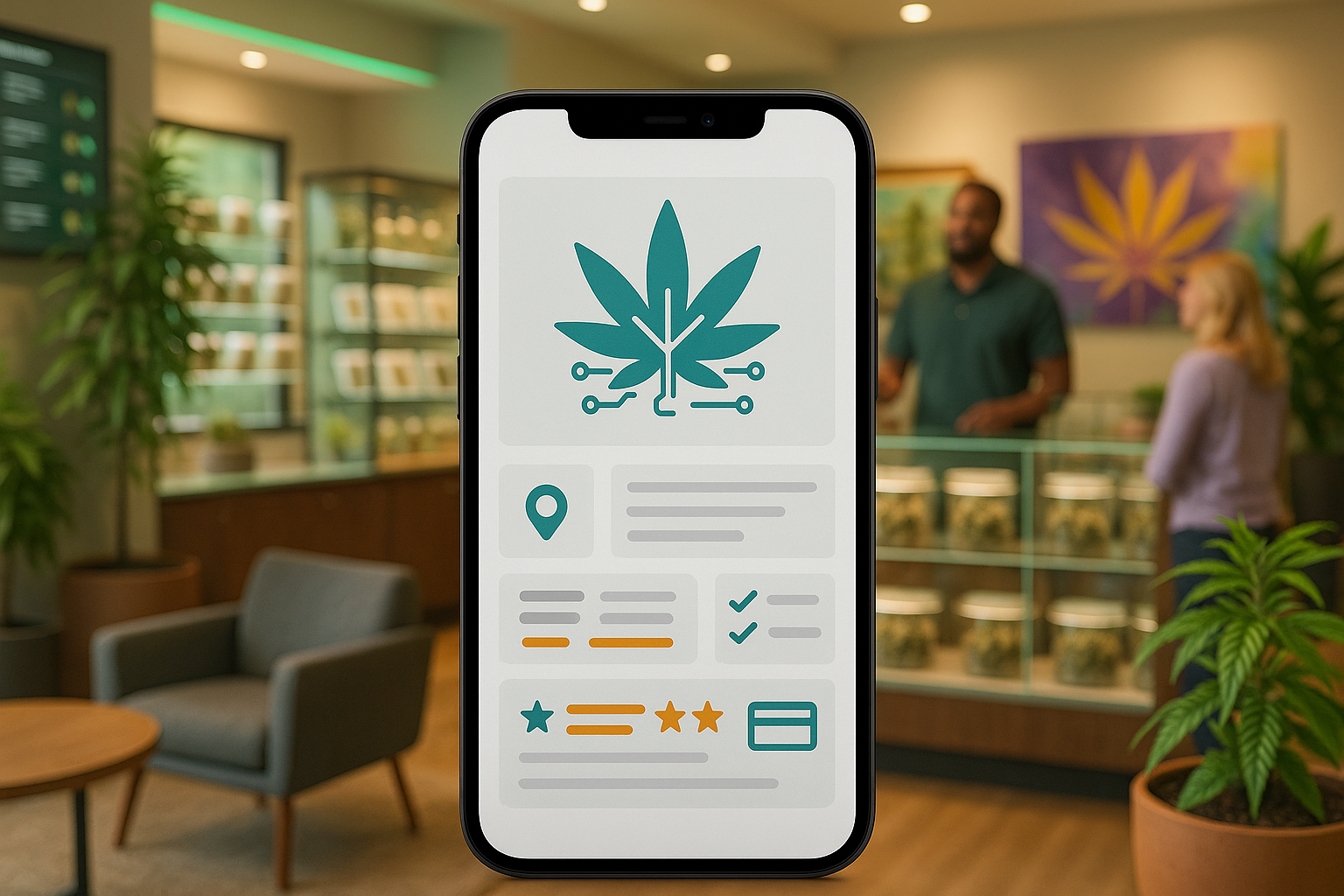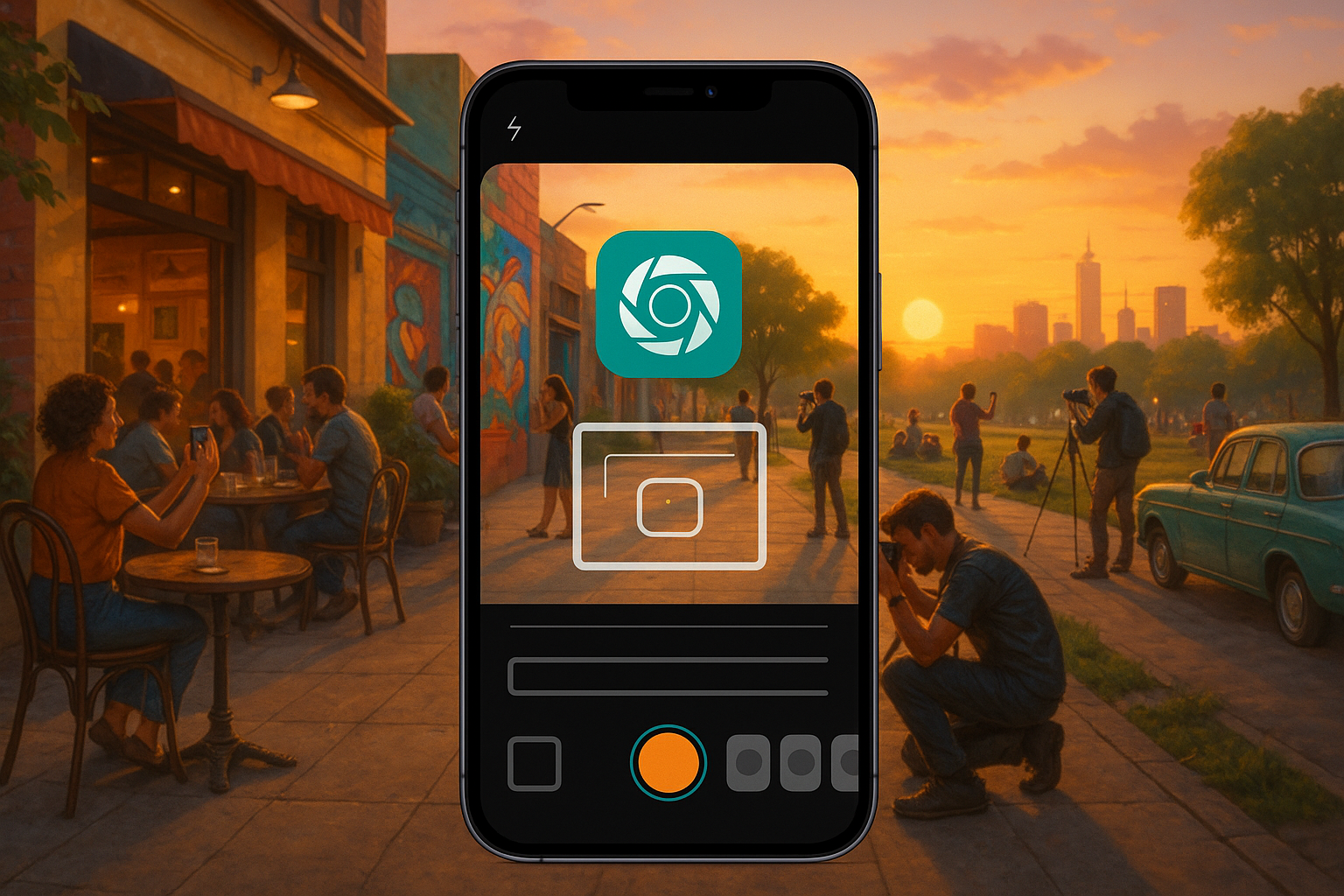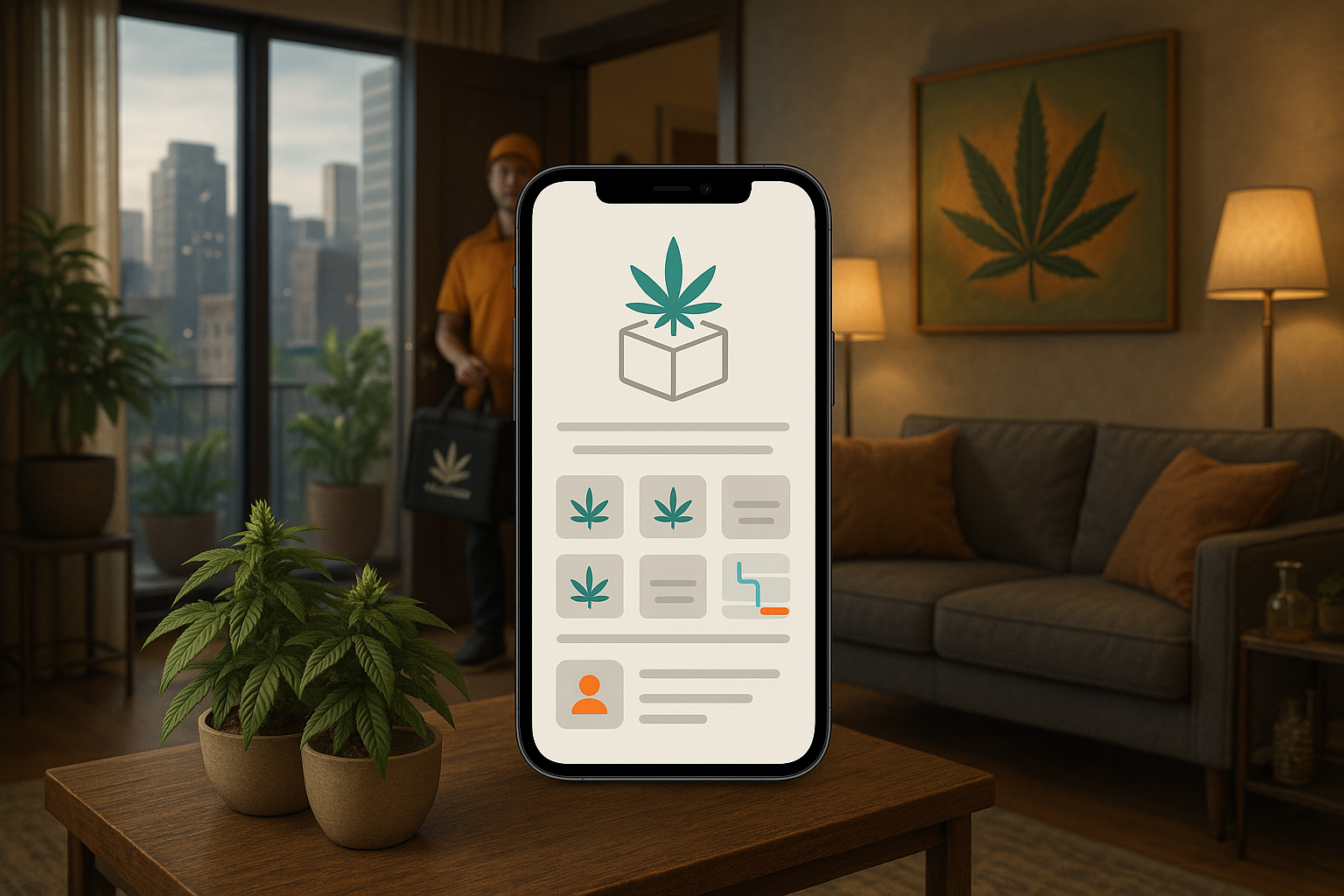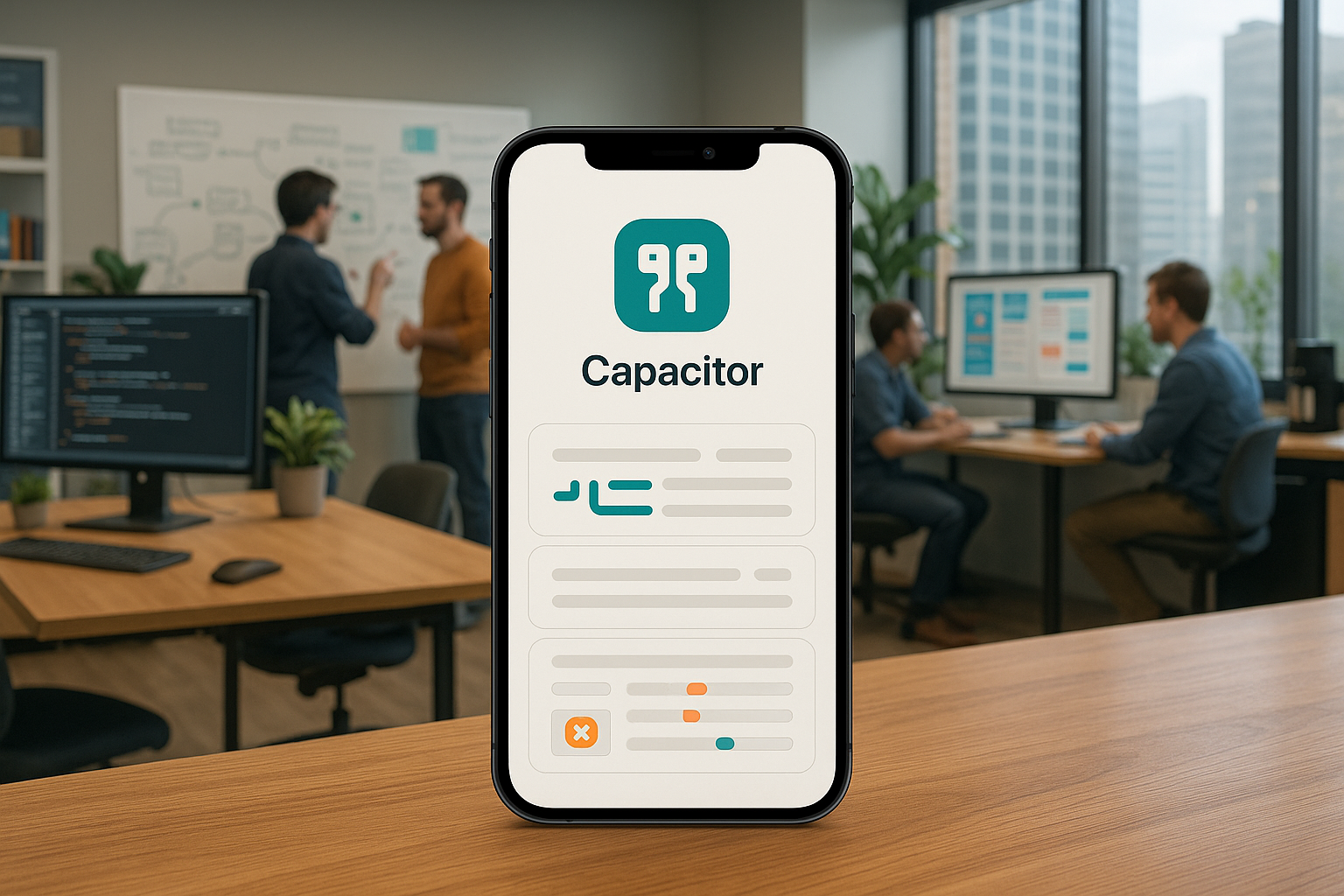The High Stakes of Cannabis App Development
The cannabis market is expanding at an unprecedented rate, and with this growth comes a surge in demand for digital solutions that connect consumers, dispensaries, and brands. Mobile applications are at the forefront of this digital transformation, offering everything from dispensary locators and strain encyclopedias to social networks and games. However, entering this lucrative space is not as simple as building a standard mobile app. Developing a cannabis application is a journey fraught with unique and formidable challenges, from navigating a labyrinth of ever-changing state and federal laws to overcoming strict app store policies and securing reliable payment processing.
Attempting to build a cannabis app in-house without specialized knowledge can quickly lead to compliance failures, budget overruns, and ultimately, a product that is dead on arrival. The legal complexities alone are enough to deter many, while the technical hurdles of ensuring security, age verification, and regional restrictions demand a seasoned development team.
This comprehensive guide will illuminate the path to successful cannabis app development. We will explore what defines a cannabis app, dissect the significant difficulties of in-house development, and categorize the diverse types of applications currently on the market. Furthermore, we will provide a detailed breakdown of development costs and introduce the leading companies that can turn your vision into a reality. As a top US AI-powered app development firm, we at MetaCTO have the deep technical and strategic expertise to help you build, launch, and grow a successful cannabis application that not only meets but exceeds market expectations.
What is a Cannabis App?
At its core, a cannabis app is any mobile application designed to serve the needs and interests of the cannabis industry and its consumers. These applications are overwhelmingly found on the major mobile platforms, Apple’s App Store and Google’s Google Play, though a study of 59 coded apps found that only eight were available on both. Despite the niche subject matter, these apps are generally free and tend to receive high user ratings—the average was 3.9/5 stars on the Apple App Store and 4.1/5 stars on Google Play.
The content and purpose of these apps vary widely, but they can be broadly categorized as either informational or recreational. The three most common content areas across all platforms are:
- Cannabis Strain Classification (33.9% of apps): These features provide users with detailed information about different cannabis strains, including pictures, effects, and user-uploaded content.
- Facts about Cannabis (20.3% of apps): These apps serve an educational purpose, offering general knowledge about cannabis.
- Games (20.3% of apps): Cannabis-themed games are a popular form of entertainment, particularly on the Android platform.
A crucial finding from market analysis is the significant underrepresentation of applications addressing the potential negative aspects of cannabis use. Only a single app out of 59 (a mere 2%) was found to provide resources related to cannabis abuse, addiction, or treatment. This gap highlights a potential area for development for organizations focused on public health and responsible use.
Why In-House Cannabis App Development is a Minefield
For many businesses, the default approach to a new project is to leverage their in-house team. However, when it comes to cannabis app development, this strategy is fraught with peril. The unique combination of legal, regulatory, and technical obstacles makes it one of the most challenging verticals in the software world. Hiring an expert development agency like us is not just a matter of convenience; it’s a critical step to mitigate risk and ensure success.
### Legal and Compliance Complexities
This is, without question, the single greatest challenge. The legal landscape for cannabis is a fragmented patchwork of local, state, and federal regulations that are in a constant state of flux.
- Varying Regional Laws: Cannabis laws differ dramatically from one state to another, and even between municipalities. An app that is perfectly legal in Colorado could violate laws in Texas. Staying compliant is non-negotiable, and this requires integrating complex, region-specific restrictions for everything from age verification and product limitations to advertising guidelines.
- Constant Adaptation: A cannabis app cannot be a “set it and forget it” product. As laws evolve, the app must adapt immediately to remain compliant. This requires ongoing legal monitoring and a flexible technical architecture that can be updated quickly.
### App Store Restrictions
Both the Apple App Store and Google Play have notoriously strict and often opaque policies regarding cannabis-related content. Getting an app approved—and keeping it from being removed—is a significant hurdle.
- Strict Guidelines: You must ensure your app meets all guidelines related to advertising, content, and in-app transactions. For example, all cannabis-related apps on the Apple App Store are rated for users “17+” years old, and 79% of those on Google Play are rated “high maturity.” Failure to adhere to these standards results in rejection.
- Platform Differences: The rules are not the same for both stores. The most popular apps on iPhone tend to be informational, focusing on strain classifications and dispensary locations. In contrast, the top Android apps are often for entertainment, such as games and phone utilities. Navigating these different ecosystems requires specific expertise.
### Payment Processing Hurdles
Because cannabis remains illegal at the federal level in the United States, traditional banking systems and payment processors are often hesitant, or outright refuse, to handle cannabis-related transactions. This creates a major operational and technical challenge for any app that aims to facilitate sales. Finding and integrating a compliant, reliable payment solution is a top challenge that requires specialized industry knowledge.
### Data Security and Privacy
Cannabis apps inherently handle sensitive user information, including personal identification for age verification, payment data, and purchase history. A data breach could have severe legal and reputational consequences. Building an app with robust, bank-level security is essential to protect users and the business itself.
These combined challenges—legal, regulatory, financial, and technical—make in-house development a high-risk venture. At MetaCTO, we have over 20 years of experience navigating complex development environments. We provide the expert guidance needed to handle these hurdles, transforming your big idea into a compliant, secure, and market-ready app. Learn more about our Custom Mobile App Development process.
The Diverse Ecosystem of Cannabis Apps
The world of cannabis apps is far more varied than one might expect. Based on a comprehensive analysis of apps available on the market, we can categorize them by their primary function and content. This breakdown reveals distinct trends between platforms and highlights opportunities for new and innovative applications.
The following table details the prevalence of different content features across all apps, as well as the platform-specific breakdown for the Apple App Store and Google Play.
| Feature / Content Type | All Apps (59 total) | Apple App Store (30 total) | Google Play (29 total) |
|---|---|---|---|
| Informational Features | |||
| Cannabis Strain Classification | 34% | 50% | 17% |
| Facts about Cannabis | 20% | 27% | 13% |
| Information on Growing Cannabis | 14% | 13% | 14% |
| Laws pertaining to Cannabis | 12% | 13% | 10% |
| Cannabis Cup Results | 9% | 13% | 3% |
| Cannabis Dictionary | 5% | 10% | 0% |
| Cannabis Smoking Etiquette | 5% | 7% | 3% |
| Commercial & Service Features | |||
| Recipes for Cooking with Cannabis | 17% | 13% | 21% |
| Dispensaries (Locators, etc.) | 17% | 27% | 7% |
| Medicinal Use (Doctor Connection) | 12% | 17% | 7% |
| Recreational & Entertainment | |||
| Games | 20% | 13% | 28% |
| Utilities (Wallpaper, Widgets) | 15% | 10% | 21% |
| Cannabis Quotes | 5% | 0% | 10% |
| Virtual Simulation | 3% | 0% | 7% |
| Cannabis Jokes | 2% | 0% | 3% |
| Social & Community Features | |||
| Social Media | 14% | 20% | 7% |
| Cannabis Social Gatherings | 5% | 7% | 3% |
| Tracking & Health Features | |||
| Log of Cannabis Use | 9% | 13% | 3% |
| Abuse, Addiction, or Treatment | 2% | 3% | 0% |
As the data shows, there is a clear divergence between the Apple and Android ecosystems. Apple App Store users gravitate towards informational and utility-driven apps, with half of the top apps providing strain classifications and over a quarter featuring dispensary information and general facts.
In contrast, the Google Play store is dominated by entertainment. The most popular categories are games (28%), phone utilities like custom wallpapers and widgets (21%), and cannabis food recipes (21%). Tellingly, not a single app on Google Play addressed cannabis abuse or treatment, and informational apps about laws or strains were far less common.
This diverse landscape offers numerous entry points for a new app, whether it’s by creating a best-in-class informational resource, an engaging game, or by filling a critical market gap, such as responsible use and addiction support.
Estimating the Cost of Cannabis App Development
One of the first questions for any new app venture is, “How much will it cost?” For a cannabis app, the answer is complex, with a wide potential range from $10,000 to over $120,000. The final cost depends on several prominent factors, with the number and complexity of features being the most significant driver. Every feature, from a simple strain browser to a complex, legally compliant e-commerce platform, adds layers of complication that impact the development timeline and overall cost.
Let’s break down the primary factors that influence the budget for building an app like the popular cannabis resource, Leafly.
### Cost by App Complexity
The size and complexity of an app are paramount. A large application with numerous features requires more development resources, which directly enhances the associated costs.
| Complexity Level | Description | Estimated Cost Range |
|---|---|---|
| Basic | MVP with core features like strain info and basic search. | $10,000 – $15,000 |
| Intermediate | Includes user profiles, reviews, dispensary maps, and more interactivity. | $15,000 – $20,000 |
| Advanced | Adds complex features like e-commerce, delivery tracking, and loyalty programs. | $20,000 – $35,000 |
### Cost by App Design (UI/UX)
A professional and intuitive design is not just a cosmetic choice; it is crucial for user engagement and retention.
| Design Level | Description | Estimated Cost Range |
|---|---|---|
| Basic | Template-based design with standard UI components. | $1,000 – $5,000 |
| Intermediate | Custom branding, improved user flows, and a more polished look. | $5,000 – $10,000 |
| Advanced | Highly customized, brand-centric design with animations and a premium feel. | $10,000 – $20,000 |
### Cost by Platform Choice
Deciding whether to launch on iOS, Android, or both has significant cost implications.
| Platform Type | Description | Estimated Cost Range |
|---|---|---|
| Single Platform | Developing exclusively for either iOS or Android. | $10,000 – $20,000 |
| Native Platforms | Building two separate, optimized apps for both iOS and Android. | $20,000 – $35,000 |
| Cross-Platform | Using a single codebase (e.g., React Native) to deploy on both platforms. | $35,000 – $50,000 |
### Cost by Development Team
The type of team you hire will be one of the largest variables in your budget.
| Team Type | Description | Estimated Cost Range |
|---|---|---|
| Local Small Agency | A smaller, domestic team. | $10,000 – $20,000 |
| Local Large Agency | A larger, more established domestic agency. | $20,000 – $30,000 |
| Offshore Agency | An agency based in a country with lower development costs. | $30,000 – $40,000 |
| Top-Tier Global Agency | A premier agency with a global presence and top talent. | $40,000 – $50,000 |
To offset these development costs, it’s vital to have a clear monetization strategy. Implementing features like delivery fees or exploring multiple monetization models can help cover the initial investment and generate ongoing revenue. Our experts can help you devise the perfect strategy to monetize your application effectively.
Top Cannabis App Development Companies
Choosing the right development partner is the most critical decision you will make. You need a team with proven experience not just in app development, but in the unique challenges of the cannabis industry. Here are some of the leading companies in the space.
### 1. MetaCTO
As a top-tier, US-based AI-powered app development firm, we at MetaCTO are uniquely positioned to navigate the complexities of the cannabis market. With over 20 years of experience and more than 120 successful projects launched, we specialize in transforming ambitious ideas into market-leading applications. We don’t just build apps; we build businesses.
What sets us apart is our comprehensive, five-step process that guides you from concept to sustainable growth:
- Validate: We help you quickly launch a Minimum Viable Product (MVP) to test your concept, gather real user feedback, and secure investor funding on a tight timeline and budget.
- Build: We handle the entire development lifecycle—from UI/UX design to building a robust backend and launching on app stores—ensuring a smooth, compliant, and polished final product.
- Grow: Launch is just the beginning. We use analytics and A/B testing to optimize user onboarding, engagement, and retention, helping you build a loyal customer base.
- Monetize: We work with you to implement effective monetization strategies, from in-app purchases and subscriptions to compliant transaction models.
- Evolve: As your business scales, we ensure your app evolves with it, integrating the latest technologies to maintain a competitive edge.
Our expertise in AI Development allows us to build next-generation cannabis apps with features like personalized strain recommendations, AI-powered compliance checks, and intelligent user support, providing an unparalleled advantage in a crowded market.
### 2. App Development Force
App Development Force is a company that offers comprehensive mobile solutions designed specifically for the cannabis industry. Their team brings together experts from cannabis and technology to create custom-built apps tailored to client needs. Their services include custom design and development, as well as app branding, optimization, and maintenance.
### 3. Intellectsoft
Intellectsoft is one of the biggest app development companies providing a range of software services to the cannabis sector. With extensive experience working with both startups and established businesses, they offer agile app development cycles, testing, and maintenance. They have built cannabis applications for some leading brands in the industry.
### 4. Appetizer Mobile
Appetizer Mobile is a leading developer specializing in custom and secure cannabis apps. They offer solutions tailored to client needs, including cross-platform compatibility and multi-language support. Their team considers all aspects of app creation, from user experience and UI/UX design to development and deployment, and has built apps for many marijuana businesses.
### 5. Y Media Labs
Founded in 2009, Y Media Labs specializes in creating fully customizable cannabis apps for both medical and recreational use and is considered one of the best in the field. Beyond development, they provide strategy consulting to help businesses create winning app strategies and offer analytics tools to monitor user engagement and conversion rates. They have many successful apps in the App Stores.
### 6. Creative27
Creative27 is an award-winning mobile app development company with a specialty in cannabis app design and development solutions. They offer a wide range of services, including mobile app design, development, and marketing. Their team has extensive experience creating customized solutions for clients in the legal cannabis industry.
Your Partner in Cannabis Innovation
The journey of developing a cannabis app is complex, but the potential rewards are immense. As we’ve covered, success requires a deep understanding of the diverse types of cannabis apps, from informational strain guides to recreational games. It demands a realistic grasp of the development costs, which are heavily influenced by complexity, design, platform, and the team you choose. Most importantly, it requires a partner who can expertly navigate the formidable challenges of in-house development: the constantly shifting legal landscape, strict app store regulations, and tricky payment processing hurdles.
Building a compliant, secure, and engaging cannabis application is not something to be taken lightly. It requires a strategic partner with a proven track record of launching successful apps in challenging environments. At MetaCTO, we have the experience and the process to guide you every step of the way, from validating your initial idea to launching a polished product and scaling it for long-term growth. We transform technological complexity into a clear path forward.
Don’t let the hurdles of development stand between you and the booming cannabis market. Talk with a Cannabis expert at MetaCTO today to integrate powerful, compliant cannabis features into your product and build your next success story.






